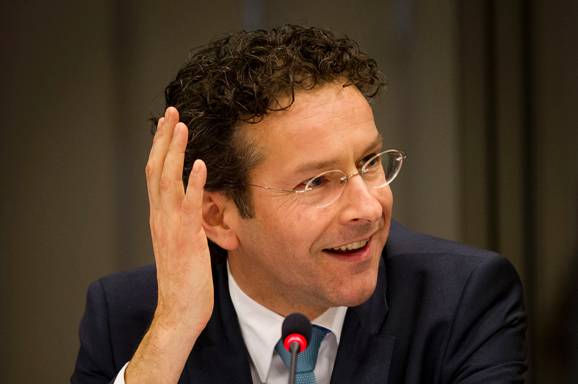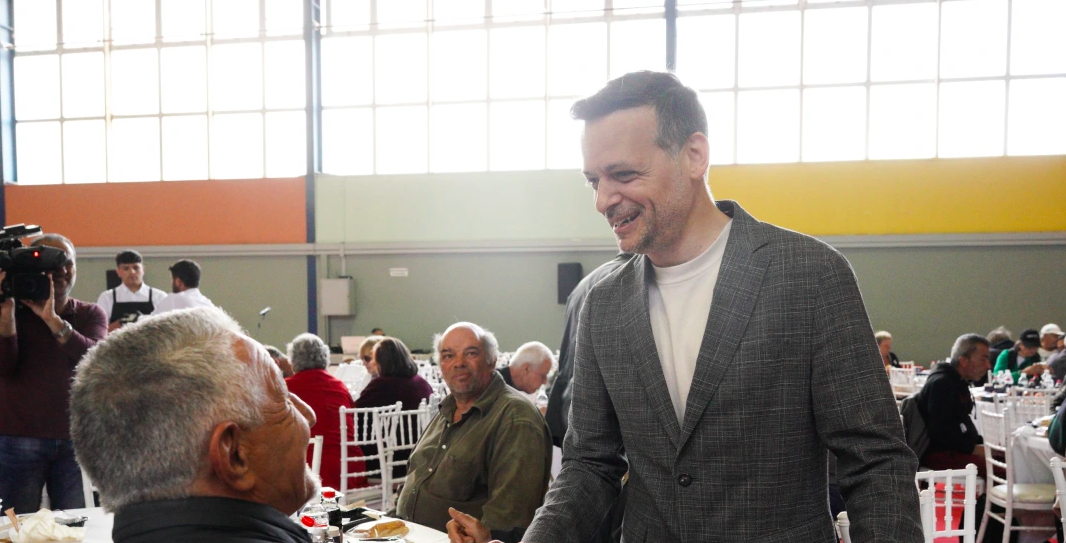The Eurogroup will convene with 18 members after the press conference to discuss the future of Greece without Greece in a historic moment as the country’s membership in the eurozone hangs on a thread.
The Eurogroup statement has been agreed upon by 18 eurozone finance ministers barring Greece. Eurogroup Chief Jeroen Dijsselbloem states that the Eurogroup was negatively surprised by the statements made by the Greek Prime Minister Alexis Tsipras. Talks were going on by European officials and Greek representatives when the Greeks were called out of the meeting. The other 18 members of the Eurogroup regret that talks were broken off on Friday night and the program will expire on Tuesday night. Dijsselbloem predicts that the situation will deteriorate.
Asked if there was anything that Greeks could do to stay in the Eurozone, Dijsselbloem said: “Right now, a referendum on this problem, with a ‘negative advice’ is in the Athens parliament. Greek MPs need to understand that the package wasn’t completed – there is no comprehensive package from the eurogroup – and need to understand the risks that are ahead in the coming weeks. I regret those risks, but they are there.The Greek parliament needs to consider where we are in the process, if they’ve been properly informed about the program, and what is ahead. Only then can they take a ‘wise decision’.”
The full statement:
Good afternoon. Let me first make some preliminary remarks. Firstly, we have set out our conclusion in an Eurogroup statement, which will be distributed to you. Maybe you already have it. This was not agreed by the Greek representative in the Eurogroup. It was a statement by 18 ministers and you will see a footnote making it clear that the Greek representative in the Eurogroup cannot agree with this statement. Second preliminary remark, we will immediately after this press conference have a second meeting to discuss any consequences from the political conclusion just drawn and to prepare for whatever is needed to make sure that at all times the stability of the Eurozone remains at its high level.
As I said this morning when I came into the building, we were negatively surprised by the steps that the Greek government took last night. First of all, if you remember after the last Eurogroup, I said that the door was still open and we were still prepared, and the institutions were still prepared, to look at last proposals from the Greek side and to continue talks. These talks were actually going on last night between the institutions and the Greek authorities when the Greek representatives were called out and had to leave the meeting. This took place last night and that basically brought the talks to an end. Very quickly it was made clear why that took place. The Greek government has decided to respond negatively to the proposals which the joint institutions had put on the table. They rejected those proposals and the joint opinion of the other 18 members of the Eurogroup is that they very much regret this, and they regret that last night’s talks were broken off and that today no further negotiations or talks were possible. Not only the Greek government rejected the last proposals by the institutions, they have to realise that those proposals made maximum use of the flexibility that the Eurogroup allowed in this process. We address those two kinds of flexibility in our statement of 20 February. We were prepared to take into account the recent economic developments in Greece, that there has been major setback in the economic situation, and secondly there was flexibility to allow the new Greek government to propose alternative ways to bring Greece back onto a sustainable path, fiscally, economically, and in terms of financial stability. The institutions, in their proposals, made maximum use of that kind of flexibility. Nonetheless, the Greek authorities have rejected those proposals and decided to put a proposal to their parliament, which is debated right now, to have a referendum with a negative advice on the proposals. The process wasn’t finished, as far as we were concerned, the proposals weren’t definitive; they weren’t formally discussed or decided in the Eurogroup, yet the Greek government has broken off the process, has rejected the proposals and is now putting them, which is also an unfair way, to the Greek people, to a referendum with negative advice.
Given that situation, we must conclude that, however regretful, the programme will expire on Tuesday night. That is the last date that we could reach an agreement and it will expire on Tuesday night. And, as I said, we will reconvene after this press conference to look at further steps to take, determined as we are to maintain strength and credibility of the Eurozone. That is all.




































